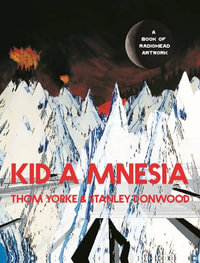For many music fans, metal was visual before it was aural. The album artwork that caught one's attention, the t-shirt worn by a friend, or the film that introduced fans to new bands were important to metal culture even before one musical note was heard. Varas-D az and Nev rez Ara jo explore the visual dimensions of metal music from the specific socio-historic, geographic, and political positionality of Latin America and the Caribbean. They position metal music's visual dimensions as storytelling devices to understand and challenge the legacies of social oppression faced in these parts of the world, a process marked by coloniality. In this context, the visual register of metal music allows creators and consumers to engage in four distinct strategies (i.e., seeing, revealing, inverting, and appearing) as part of what the authors have termed extreme decolonial dialogues. The authors support their position by using a diverse lens to examine a plethora of essential aspects of the visual dimensions of metal music: album artwork, clothing, film, traditional and virtual sites, activist practices, and even their research endeavors, all of which are constituent of metal music's visual culture. You will never see metal music in the same light again.
Industry Reviews
After years in the proverbial wilderness, metal studies has started to enter the academic mainstream - precisely where it doesn't belong. This incredible work of ethnography, ethnomusicology, political geography and sonic ecologies reminds us not only that heavy metal and its various subgenres have always been a quintessentially global music, but that their extreme sonic force demands and enables equally innovative and powerful forms of scholarship to explore them. Nelson Varas-Diaz and Daniel Nevarez Araujo have created a landmark work of scholarship as important to metal studies as Black Sabbath, Kill 'Em All or Number of the Beast were to the music. A must read for any students of cultural studies, popular music studies, or connoisseur of metal the way it's supposed to be heard, and seen - loud and uncompromising. -- Mark LeVine, Author of Heavy Metal Islam and We'll Play till We Die Nelson and Daniel's work is a powerful contribution to the world of Metal Studies as it pulls back the curtain of what metal in the Global South truly represents. Seeing Metal Music in Latin America and the Caribbean forces us to come face-to-face with our own assumptions of how we both see and hear metal in the Global South by presenting stories of resistance and rebellion in a manner that amplifies the voices of those who continue to feel colonialism hovering over them. I have a feeling this is a book that scholars and fans will be talking about for some time. -- Edward Banchs, author of Heavy Metal Africa: Life, Passion and Heavy Metal in the Forgotten Continent and Scream for Me, Africa! Heavy Metal Identities in Post-Colonial Africa
























